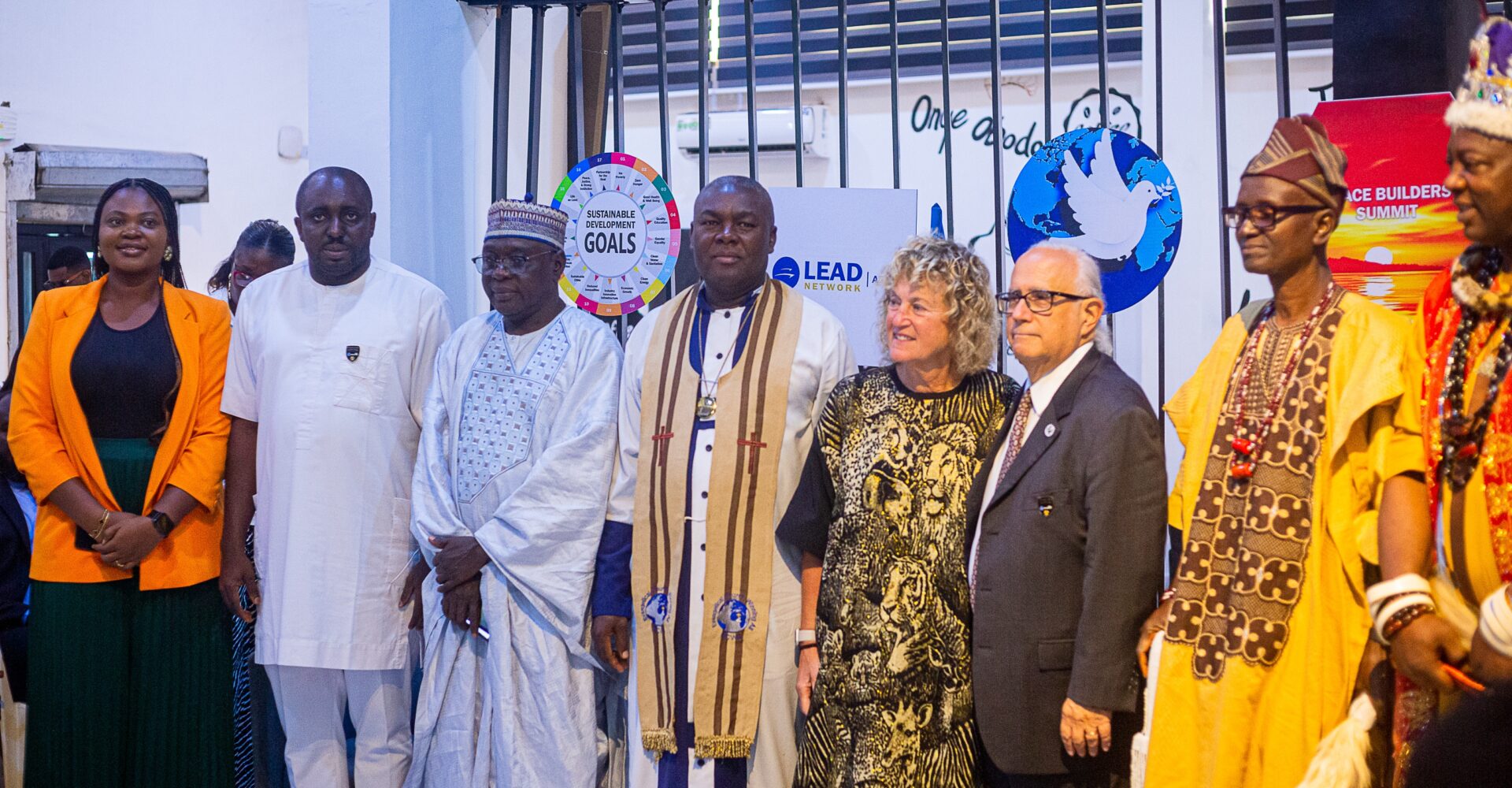Religious leaders, traditional rulers, and community members gathered in Enugu for the Peace Builders Summit, a powerful call to foster unity and peaceful coexistence in Nigeria’s diverse society.
With the theme “Fostering peace in a diverse society”, the summit featured a keynote address by American peace advocate, Dr. Emanuel Perlman, panel discussions, and interactive sessions aimed at bridging religious and ethnic divides.
Dr. Perlman, the founder of Destination Peace, set the tone for the event by stressing the need for empathy, open dialogue, and cooperation.
“We must listen to each other and work together to build a better future,” he said.
He argued that the biggest challenge to peacebuilding lies in humanity’s refusal to see beyond personal and religious identities.
“What destroys peace is resentment due to the crime of ignorance,” he noted.
Using biblical illustrations, Perlman pointed out the misplaced focus in religious narratives.
“Everyone is more concerned about Isaac and Ishmael, rather than Abraham, who is the father of diverse faiths. People are not willing to share, and that’s why peace might not abound.
“We need to love our neighbours and strangers, just as the Bible instructs us,” he said.
He emphasised that religion itself is not the problem.
“Religion is not the root cause of problems, but rather the followers of religion,” he added.
Traditional leaders also lent their voices to the call for harmony. The Chairman of the Enugu State Traditional Rulers Council, His Royal Majesty, Ikechukwu Asadu, urged people to see each other as equals.
“Everyone should be esteemed as equal to the other, irrespective of tribe, belief or creed,” he said. As traditional rulers, our role is to create an enabling environment for everyone to thrive.”
Similarly, His Royal Majesty Samuel emphasized the foundational role of peace in national development.
“Peace is the foundation for nation building, but a house built on a wrong foundation is not sustainable,” he said.
The Oba of Yorubas in Enugu State, Alhaji Abdullaziz Adebayo, described the Yoruba people as peace-loving and respectful.
“Yorubas are the most peace-loving people in Nigeria. Our ability to live peacefully with our host communities is because we are respectful, regardless of where we find ourselves. If all tribes in Nigeria were as peaceful as the Yorubas, there would not be a problem with peaceful coexistenc,” he said.
From the Hausa community, His Royal Highness Abubakar Yusuf Sambo II, the Sarkin Hausawan Enugu, described Islam as a religion of peace.
“Islam is total submission to the will of God. When Islam is followed the right way, there will not be violence anywhere,” he said.
“Injustice is the major reason for violence.”
He blamed some religious leaders for failing in their duties:
“Some religious leaders have refused to teach their followers the right doctrines. It is selfishness and ego. Anyone who commits crimes of violence in the name of Islam cannot be said to be a true Muslim; he is a criminal and should be handled as such.”
On his part, the Chairman of the Christian Association of Nigeria (CAN), Enugu State chapter, Rev. Emmanuel Edeh, said Christians have long promoted peace, even though they often face hostility.
“Christians have not been fairly treated within Nigeria, despite being a religion that teaches its followers to live peaceably with all men,” he said.
“Unfortunately, other religions in Nigeria have not reciprocated this peace back to Christians; what we get in return is violence, and this is not good. If we must have peace in Nigeria, we must learn to call a spade a spade.”
The convener of the summit, Mr. Chukwuma Okenwa, called for deeper reflection and unity, questioning the source of ongoing disunity.
“If every religion and tribe in Nigeria claims to love peace, then where is the disunity and violence coming from?” he asked.
“What connects us—our humanity—is far weightier than what divides us. Despite our differences in religious beliefs and ethnicity, our common humanity presents a concrete basis for us to work together collectively.”
Participants at the summit also offered insights.
Mr. Uche Gabriel said:
“The key to peaceful coexistence is to respectfully practice one’s religion without imposing it on others.”
Another attendee, Lemi Jonathan, identified religious intolerance as a serious concern.
“Religious tolerance is the way to go,” he said.
Professor Joy Ogbonnaya added:
“We need to be intentional in building peace and solving problems despite our differences.”

 Skip to navigation
Skip to content
Skip to navigation
Skip to content











Comment here